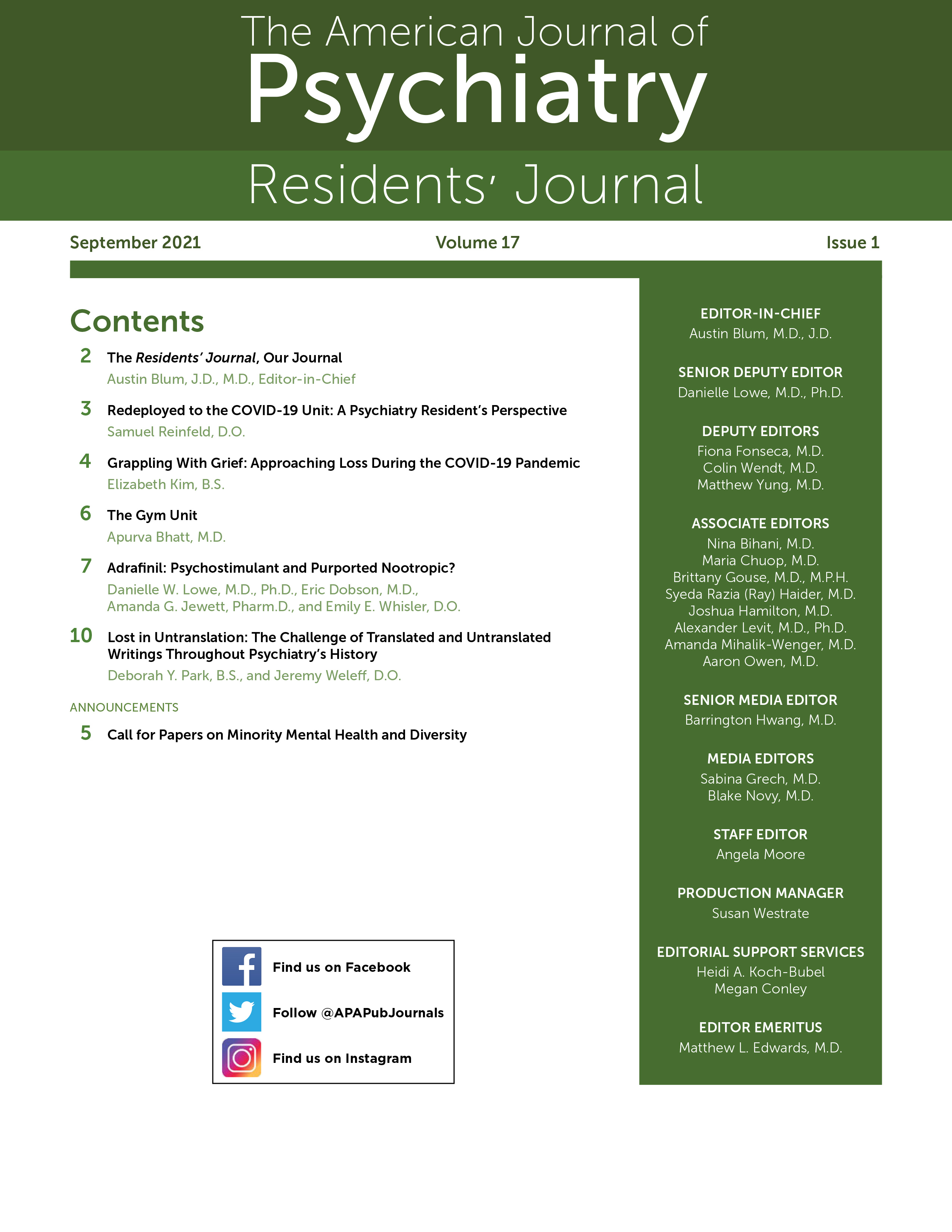"Doctor, the patient in room 40 is tachypneic and saturating at 85% on a non-rebreather," the nurse tells me with an obvious tone of concern and sense of urgency.
These are the words I have come to expect after being "re-deployed" from the psychiatry service to the medicine floors to help provide coverage on the critically overwhelmed COVID unit. I thank the nurse while reaching for the phone to call the intensive care unit to inform them of the inevitable transfer of yet another deteriorating patient. I then start preparing for my encounter with the patient, a process that has become almost ritualistic. I begin by pulling the yellow plastic gown over my torso. This is followed by slipping both of my hands into purple rubber gloves and, finally, by adding my face shield. Since my mask is now a part of my regular wardrobe, I am ready to enter the lion's den that is the patient's room. As I turn the knob, a fleeting thought enters my mind: this is not what you expected from psychiatry residency. I immediately dismiss this unwanted thought as I enter through the door.
I observe a young gentleman who is noticeably ill, weak, diaphoretic, and barely able to keep his eyes open. An oxygen mask is tied to his face; the ominous reading of the pulse oximeter matches this man's declining clinical presentation. As I observe this patient in an increasingly hopeless position, my psychiatric instinct is to provide some brief supportive therapy. However, I make the decision to preserve time and tell him that he will be transferred to the intensive care unit where there is a possibility of intubation. As he listens, he slowly removes his oxygen mask and asks in a weak voice if I would call and speak with his wife in his presence, to which I agree. She asks me questions that nobody in the country knows the answers to, much less a psychiatry resident who is outside his element. Through the phone, I identify with this distraught woman's palpable feelings of powerlessness as I am unable to provide a prognosis for her husband. After a seemingly long couple of minutes, they both agree with the plan.
My mind wanders as he is transferred to the ICU. Will he be intubated? Will he see his wife again? I dismiss these thoughts as I leave the room.
As I take off all my extra gear, the thought—this is not what you expected—begins to creep back into my mind. I then take notice of my two co-residents who are managing the unit with me. The first is a radiology resident, the second is an orthopedic surgery resident—both "re-deployed" from their respective specialties to help our hospital, overburdened with the influx of COVID-19 patients. As I watch them deal with their own actively decompensating patients battling the virus, I cannot help but wonder if they are struggling with similar thoughts. I am suddenly overcome with a wave of inner strength as I realize how these young doctors are constantly running toward the face of death, danger, and uncertainty; this is not what any of us expected. The orthopedic surgery resident pulled from the operating room, the radiology resident ripped from the dark reading room, and the psychiatry resident, all working together for one purpose, bound by an oath. In these unparalleled times, we engage in this unconventional partnership to serve patients with compassion and high-quality care. This reminded me of the fact that I had chosen medicine as a career before I chose psychiatry. At this moment, we are not the orthopedist, the radiologist, or the psychiatrist. We are just three physicians.
Acknowledgments
The author thanks Poonamdeep Gill, M.D., for her support and continued guidance throughout writing this commentary.
